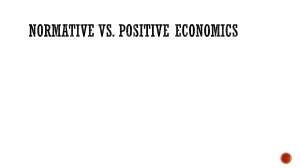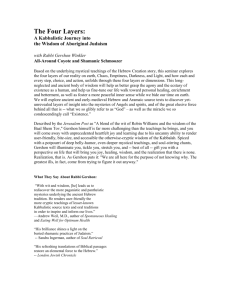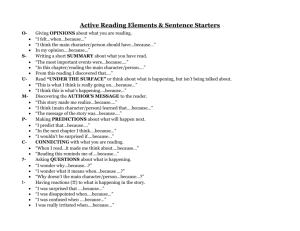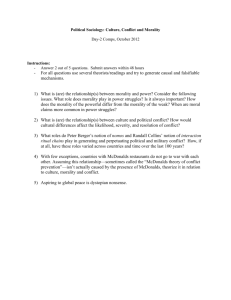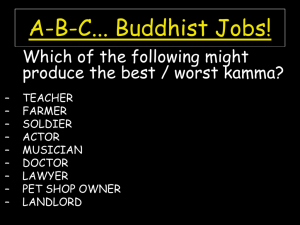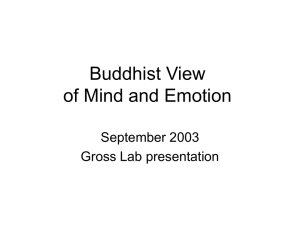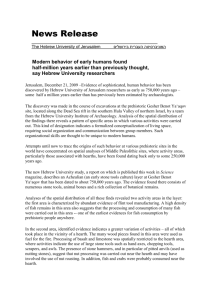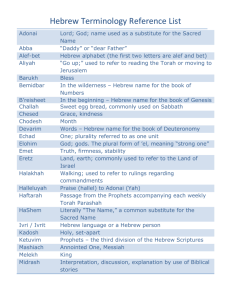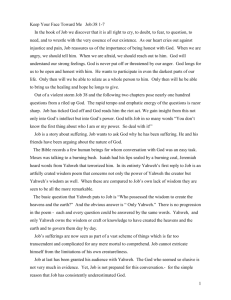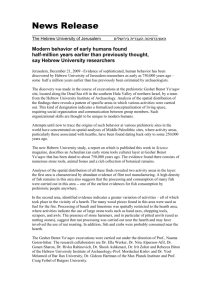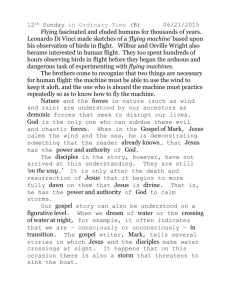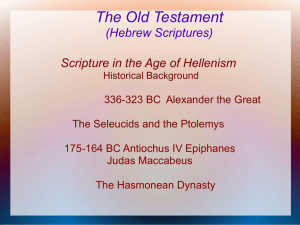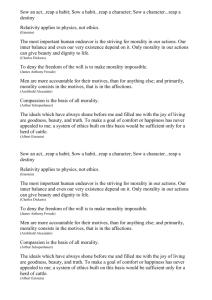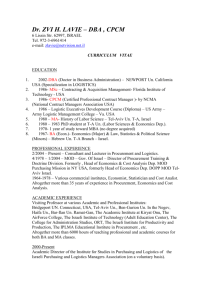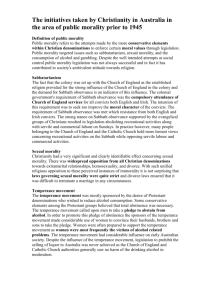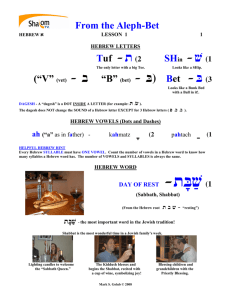The Ancient Hebrew Book of Job
advertisement
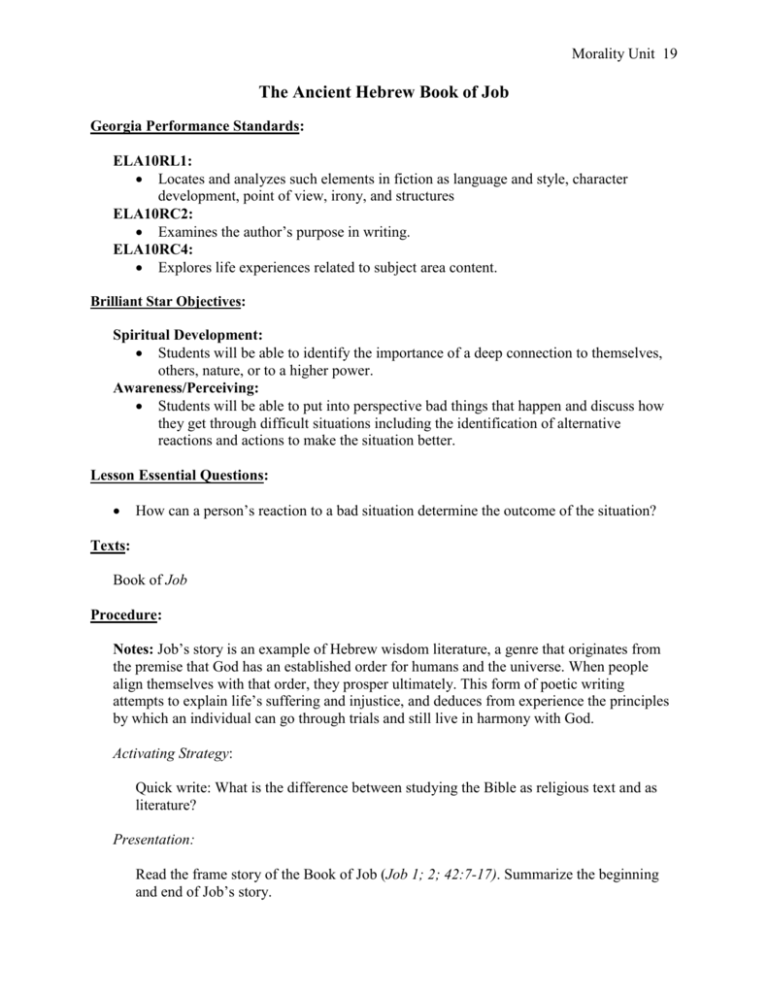
Morality Unit 19 The Ancient Hebrew Book of Job Georgia Performance Standards: ELA10RL1: Locates and analyzes such elements in fiction as language and style, character development, point of view, irony, and structures ELA10RC2: Examines the author’s purpose in writing. ELA10RC4: Explores life experiences related to subject area content. Brilliant Star Objectives: Spiritual Development: Students will be able to identify the importance of a deep connection to themselves, others, nature, or to a higher power. Awareness/Perceiving: Students will be able to put into perspective bad things that happen and discuss how they get through difficult situations including the identification of alternative reactions and actions to make the situation better. Lesson Essential Questions: How can a person’s reaction to a bad situation determine the outcome of the situation? Texts: Book of Job Procedure: Notes: Job’s story is an example of Hebrew wisdom literature, a genre that originates from the premise that God has an established order for humans and the universe. When people align themselves with that order, they prosper ultimately. This form of poetic writing attempts to explain life’s suffering and injustice, and deduces from experience the principles by which an individual can go through trials and still live in harmony with God. Activating Strategy: Quick write: What is the difference between studying the Bible as religious text and as literature? Presentation: Read the frame story of the Book of Job (Job 1; 2; 42:7-17). Summarize the beginning and end of Job’s story. Morality Unit 20 Collaborative Pairs: Have students paraphrase the following chapters (NSRV). o Job 4:3-6 o Job 8:8-10 o Job 11:13-15 o Job 12:2-6 o Job 16:4a; o Job 16:19-20 o Job 19:25-27a o Job 38:4-7 o Job 39:26-27 o Job 42:5-6 Then students answer the following questions. o What differences do you notice between Job’s attitude toward the men and his attitude toward God? o Notice that God’s part of the dialogue is made up of questions. Why is that an effective way of answering Job’s question about why this is happening to him? o Why would this book be called an example of wisdom literature? o How do Job’s responses to life contrast with those of Odysseus in The Odyssey? Formative Assessment: Grade groups’ reactions to the paraphrasing and questions from the reading of Job for understanding. Presentation: Read some excerpts from Harold S. Kushner’s When Bad Things Happen to Good People. Through it, students can relate modern experiences to Job’s experiences. To begin a discussion, “Why Do the Righteous Suffer?” is a good prompt. For a more positive aspect, read “God Helps Those Who Stop Hurting Themselves.” For remediation, there is a chapter entitled “The Story of a Man Named Job” that will guide students through Job’s story. Individual Writing Activity and Summative Assessment: Have students find articles in the news media that support that pain and suffering are not punishment for people. Once the students find the articles, they must write two substantive paragraphs addressing the following concepts and referencing the story of Job: o How a connection to yourself and/or a higher power can determine your reaction to something bad happening to you o How alternative reactions could benefit or harm a person’s situation
